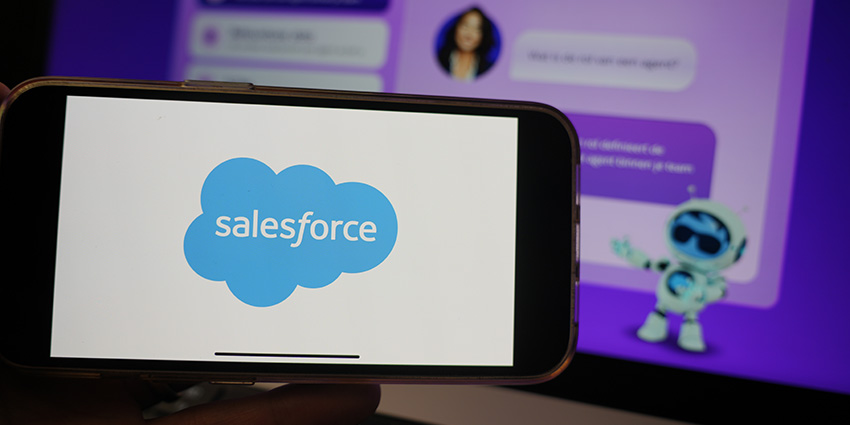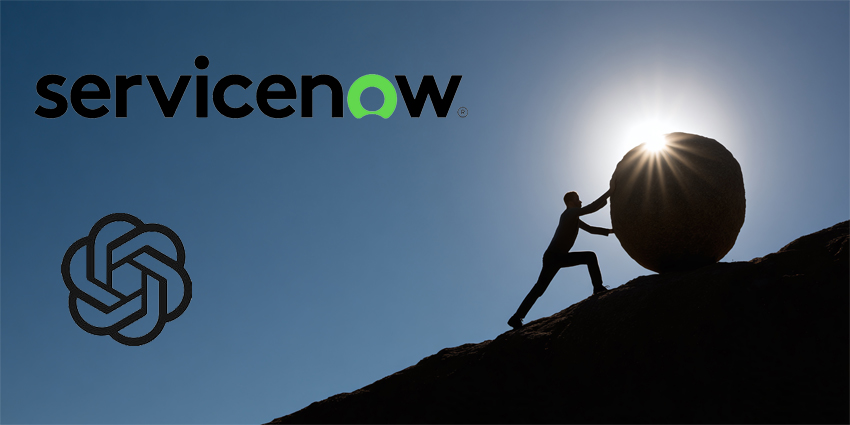Salesforce continues to bet big on agentic AI, announcing the acquisition of Convergence.ai and advancements to its Agentforce pricing model.
The one-two agentic AI combo comes as Salesforce looks to build momentum around Agentforce, with the company considering new strategies to make its platform more desirable and accessible to its broader customer base.
Take the acquisition, for example, Convergence.ai specializes in building AI agents that handle complex, human-like tasks in digital environments.
The company’s tech allows AI agents to navigate dynamic interfaces and adapt in real time to challenges such as pop-ups and errors to complete multi-step workflows.
The vendor also has expertise in AI agent design, autonomous task execution, and adaptive system development, which Salesforce believes will help to create cutting-edge agents that are equipped to handle increasingly sophisticated workflows.
In discussing the news, Adam Evans, EVP and GM of Salesforce AI Platform, commented:
“The next wave of customer interaction and employee productivity will be driven by highly capable AI agents that can navigate the complexities of today’s digital work.
Convergence.ai’s innovative approach to building adaptive, intelligent agents is incredibly impressive.
“We are thrilled to welcome their talented team to Salesforce, and we look forward to their contributions in helping Agentforce deliver AI that truly transforms how work gets done.”
New Pricing Promises
With the Convergence.ai deal not predicted to close until the second quarter of Salesforce’s fiscal year 2026, its new pricing model will roll out much faster.
Despite heralding Agentforce’s unprecedented growth during an earnings call back in February, where it was revealed that Salesforce had closed 5,000 Agentforce deals in five months, the decision to introduce a new pricing system suggests that the company is not content with the current uptake of the platform.
Indeed, 5,000 is just a small percentage of the 150,000 customers Salesforce has overall.
Its previous pricing model is likely a large part of the slower-than-anticipated uptake, with Salesforce pricing it as $2 per conversation.
That caused confusion as to what a “conversation” constituted. It also seemed a little pricey for many agentic AI use cases.
Yet, in fairness to Salesforce, pricing agentic AI is something that all enterprise technology giants are wrestling with.
Now, it may have found a simpler solution, introducing a new ‘Flex Credits’ pricing system.
Flex Credits is a consumption-based pricing model that offers greater flexibility by tying costs directly to results.
Customers only pay for specific Agentforce actions, each costing 20 credits (or $0.10 per action), with Flex Credits sold in packs of 100,000 for $500.
Kirsten Rhodes, Vice Chair and Client Relationship Development Leader at Deloitte US, was full of praise for the new pricing model, commending it for providing organizations with “the ability to customize their investments to not only help achieve their goals now but the flexibility to adapt to their evolving needs in the future.”
Similar sentiments were echoed by Ritu Jyoti, GVP and GM of AI and Data at IDC, who said that the new model was “exactly what’s needed to empower organizations to adopt AI more confidently.
It allows businesses to align their investments more closely with the value derived from agent performance.
Interestingly, Salesforce’s new model shares similarities with a recent pricing change announced by Zendesk.
Like Salesforce, Zendesk is looking to provide greater flexibility for its agentic AI customers. However, whereas Flex Credits links costs with specific actions, Zendesk takes this a step further by only charging users when AI autonomously resolves their issues.
Further Pricing Changes
Away from Flex Credits, Salesforce also announced the following two changes to its pricing system:
Flex Agreement
Salesforce’s Flex Agreement lets organizations shift investments between user licenses and digital labor, allowing them to adapt to changing business needs.
This flexibility helps maximize budgets, unlock new use cases, and boost spending efficiency.
Agentforce User Licenses
Salesforce’s new Agentforce licenses and add-ons offer unlimited employee-facing AI agent usage through a straightforward per-user, per-month pricing model.
With seamless integration across Salesforce and Slack, the update allows businesses to scale digital labor across teams without worrying about usage limits.
More Agentforce News
Last week, Salesforce launched Agentforce for HR Service, expanding its AI capabilities into the HR space.
This builds on the Employee Service module added to Service Cloud in December 2024, now rebranded as “HR Service.”
HR Service includes two main components: an Employee Portal and an HR Service Console.
Elsewhere, back in April, Salesforce introduced Agentforce for Consumer Goods, a new edition designed specifically for the consumer goods industry.
It features a library of pre-built skills and actions, allowing companies to quickly build AI agents that support customer service, sales, and field operations.






